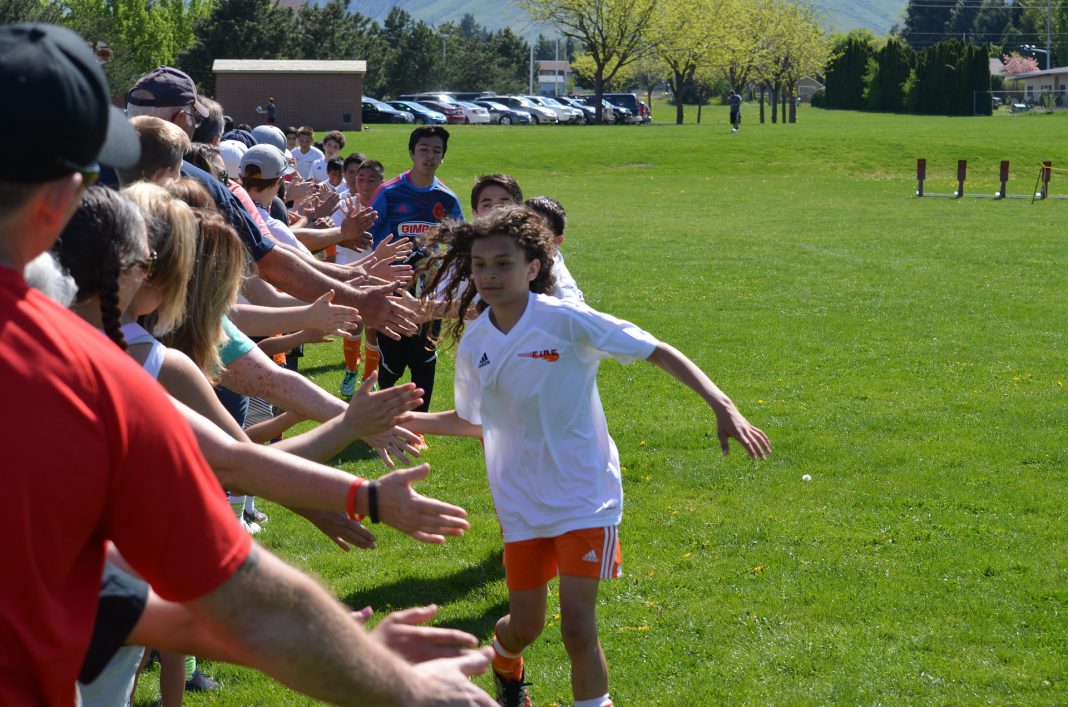Part of the enjoyment for children that play sports is the encouragement and support of your parents and looking over mid way through a match and seeing the smiling face of your mum or your dad looking at you from the sidelines supporting your every touch. This is how it should be, and is at least and ideally how it will be for every child player on every sport effort but it isn’t always the case.
Some parents too often get caught up in the emotion of wanting their child to become a star and can get carried away, angry and even violent. Believe it or not this sort of crazed parenting behavior is more common than you might think and only leads to negative effects on and off the pitch for themselves and their child. This is an open letter to all parents attending matches where their child is playing the game they love.
All parents want their child to succeed, and want them to be a star player, but far too often this desire for success has seen emotions spill over into raging and violence on the sidelines. It is one thing to cheer on your child with yells of encouragement but quite another thing to turn the air blue with your frustrations and throw out blame to children that are trying their best and their coaches. It’s worth remembering that the coaches are often volunteers undertaking the organization and logistics for matches to occur for free and who ultimately want the same thing as you for your child.
As a parent going to see your son or daughter play in a match is always going to be one of the highlights of your weekend, what a shame it would be that your behavior could well get you banned and prohibited from being able to attend your child’s matches. Aside from being the principle role model for your child you are also their number one supporter and without you there they may just lose the thing they loved most about playing the game. There have been cases in the US of parents being arrested, charged and banned from attending youth soccer matches all because they were unable to control themselves on the sidelines. So how can we stop this from happening?
That penalty that wasn’t given? That foul that wasn’t a foul? That goal where the ball was out of play. They all happen as part of the trials and tribulations of sport. These are always good life lessons for your children to learn – afterall, who in life has it all their own way? These decisions that go against your child and their team are perfect to discuss with your child after the game and look at how this relates to the game overall. All teams will benefit from miscalls or lucky occurrences at some stage in a season and so it would be absurd to let these hings destroy the experience of supporting your child.
Also, so the team plays badly. So what?! There is no need for youth teams to place the emphasis on their play and development of players on winning. Until the age of 15/16 there is absolutely no need to focus on anything other than each individual player’s technical development and comfort on the soccer pitch. You are not turned into a pro by winning a trophy aged nine! How many youthful players and teams have absolutely starred at a young level and still don’t go on to even slightly impact the big leagues. It’s not the be all and end all.
Aside from putting yourself at risk of being banned and paying huge court fees, your own self combustion will also put your child’s development as a soccer player at risk. Quite separate from the emotional trauma of watching their parent self implode with the rage that they are apparently causing, the stress and pressure of this sort of “support” puts on the child means that they will not be able to relax and confidently play their own game. They will be forcing every tackle, forcing every pass and every shot in a desperate attempt to try and impress you or just calm you down. Just relax, let them play their game with all of the expression and freedom that they would normally play with and then offer “creative criticism” after the match when they can actually process it with the pressure.
Finally let’s talk about what you should be doing. Watching, smiling and cheering. Offering encouragement and even consolation whenever needed. Your child will know if they play badly or play well, help them understand why they played like this and try and show them how they can improve. Help your child enjoy the sport, make them love performing in front of you and make them feel proud to see you on the sidelines. You need to be their role model. When they get upset on the pitch with a bad tackle show them how to deal with these things calmly and not to react with the sort of impulse that will see them receive a red card. Allow your child to be free on the pitch and this will make the sport of their choice to be a major part of their life. They will keep improving as they grow older and you will only be prouder and prouder.







